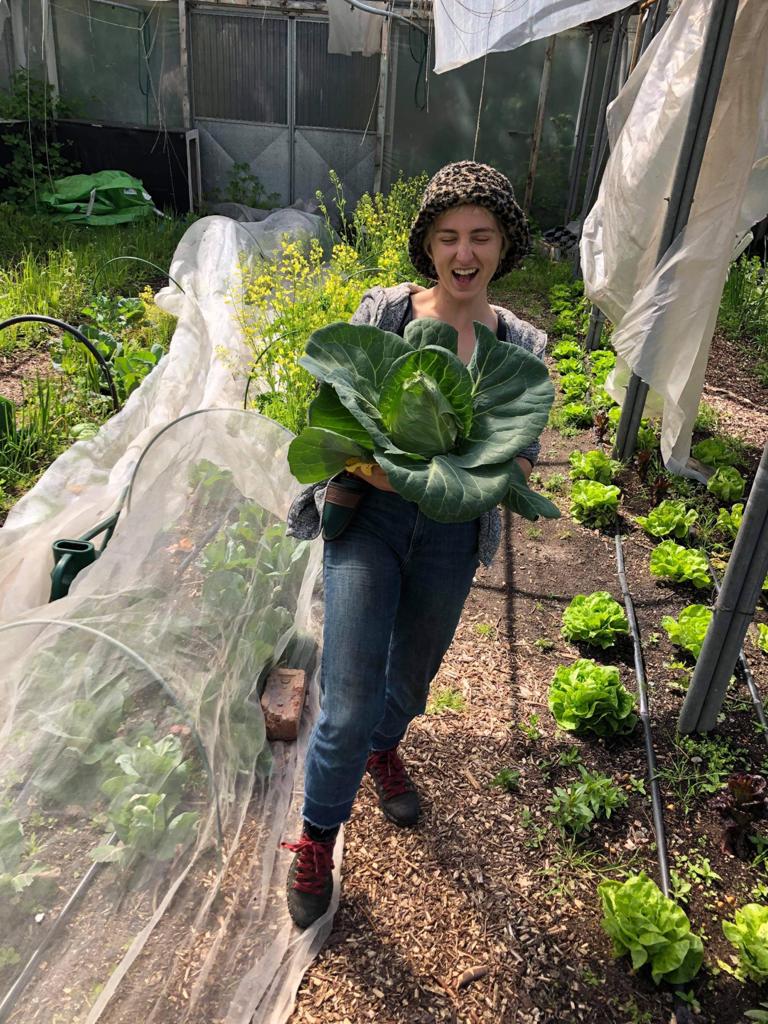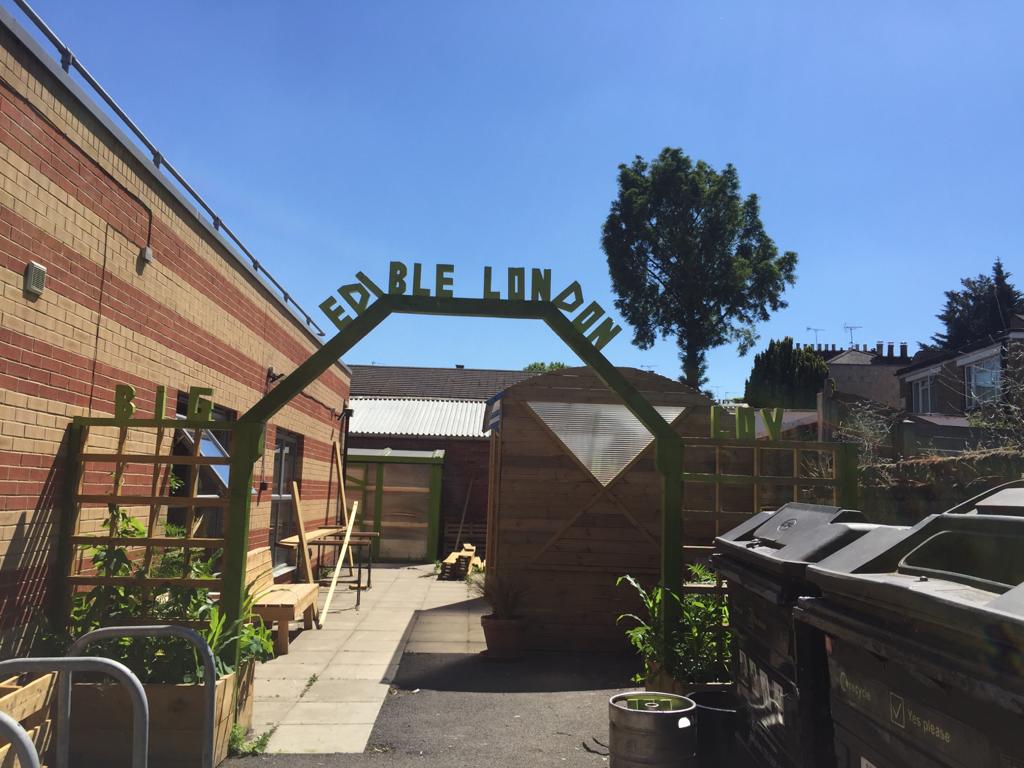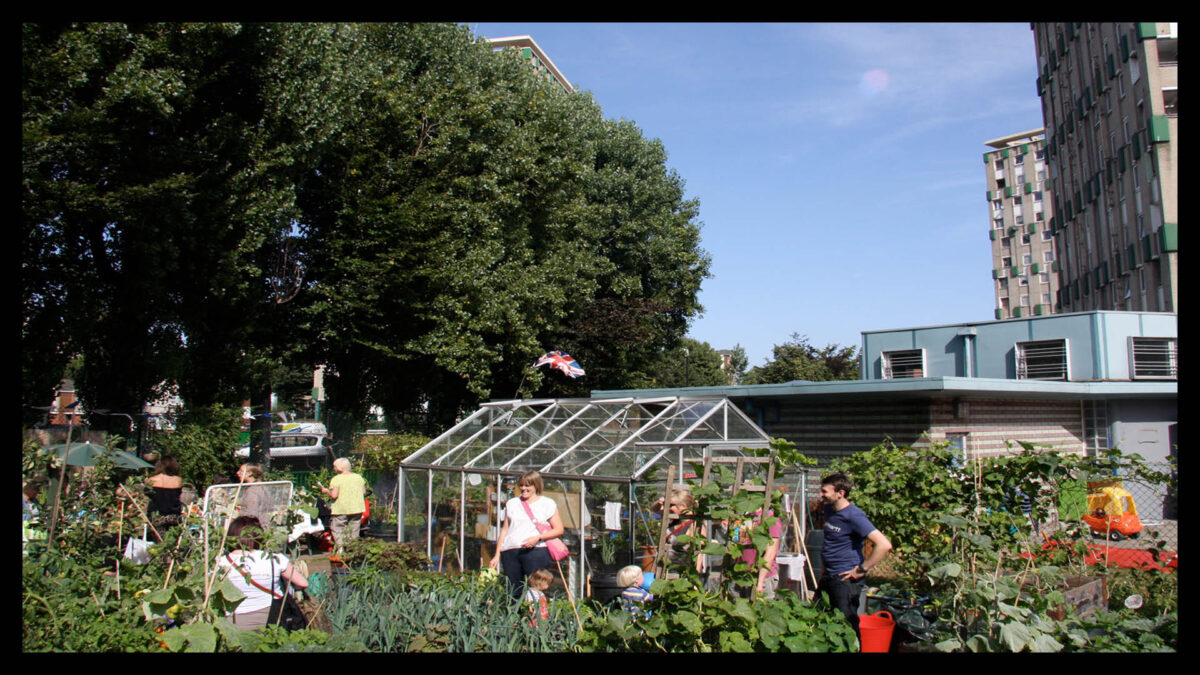It is not a secret anymore. People who have less money tend to eat more industrial food and suffer more diseases than their wealthy counterparts because of it. Organic food shops are popping up more and more around London, but the price tag is unreasonably high and usually, local communities can’t afford to shop there.
Ella Brolly, 27, is a grower at Wolves Lane Horticultural Centre, a centre for growing and distributing wholesome food located in Harringey, North London. The centre works as a consortium, it’s an organisation made up of loads of smaller organisations ( Black Rootz Collective or Edible to name a few) all with the same goal: develop affordable and accessible organic food.
“Organic food exists within a culture of privilege, it’s often predominantly in white middle class spaces,” says Ella. “That’s a narrative that really needs to be rewritten and that’s something that Wolves Lane is really aware of. We have lots of projects going on including working with local people from many different backgrounds.”
Ella is a grower for the Food for All project, an initiative that came out of Covid which aims to provide nutritious local vegetables for the people of Harringey – an area that has been severely hit by food insecurity since March 2020. As food banks and food charities usually provide tinned food or food from supermarkets, the Food for All project aims to give food to the covid meals project at Wolves Lane, who distribute it to local food banks. “We should all be able to afford food that is actually nutritious for our body,” Ella says.

Edible London is another organisation helping to tackle food insecurity around London by growing organic food and donating it to local communities: they distribute their vegetables to food banks, share it with anybody who comes to their shed, and host an affordable organic community market once a month in Tottenham Green. “We are helping people who are facing food insecurity,” said Chris, 34, who is the Head Farmer of Edible. “In recent times, there’s been a rise in numbers of people asking for our help due to the pandemic.”
More than distributing food, Edible London is looking after people’s mental health and wellbeing by having them involved in the growing process. As Chris says, Edible London is trying to turn “grey spaces” into “green spaces” by providing places for people to plant seeds and to garden. “It connects everyone,” he says. “It creates a good atmosphere and it’s very beneficial in many ways. Having people involved helps to raise awareness about what food quality should be like.”
And Ella is aware of that as well. She talks about how the rise of industrial food has separated humans from their environment, and quoted the Indian environmental activist and food sovereignty advocate Vandana Shiva. She mentions what she calls the ecological apartheid: “We have this incredible separation from us and our land,” she says. “If we can bridge this gap particularly within the urban environment, we can find a way to make people feel closer to their ecosystems and raise awareness to build better systems and better practices. In this way hopefully then people will care.”

Moving towards organic and regenerative farming practices is also better for the environment. “Industrial food is just 30% of the world’s food system, but it’s responsible for 70% of the world’s ecological destruction,” added Ella. Organic practices are much less damaging to the environment as they don’t use as many pesticides and are less damaging to ecosystems. “We will use only natural ways of managing and controlling pests – which tend to be less blanket effective,” she says. “But it is better for the ecosystem’s health in general.”
Chris even highlighted that producing food with organic and non-conventional methods made a massive difference in their products, not only in the quality but also in the quantity. “It gave us the possibility to share our food and give people a taste of what produce is like when you grow it organically. Hopefully it’ll inspire them to be interested in it.” When we asked him if he could define organic food, his response put things back into order. “Organic food is a weird phrase actually,” says Chris. “A couple of generations ago, it didn’t exist because it didn’t have to exist. Organic food is normal food, that’s how food is supposed to grow. We call it this way in reaction to industrialisation, but it shouldn’t be any different from what we should normally expect.”
However, the issue remains: organic food nowadays, on a bigger scale, stays unaffordable. Ella explains that the price tag is linked to the fact that those practices need more labour, time and care compared to industrial farming methods. “Dealing with different issues makes it more expensive,” says Ella. “We can do our best from the ground, we can do our best from community growth,” she adds. “We can get grants funding for our projects and we can give up food for free – but that’s small initiatives in a very very large system.”
A bigger change is then in the hands of the higher powers. Organic food could be affordable if the government would subsidise the growth of organic food and encourage farmers and land workers to grow this way. Take the example of how the government subsidises meat: “If you were to buy a burger in a random fast-food restaurant, and the government wouldn’t subsidise the cost of meat, it would cost £10 instead of £3 and it would be completely unaffordable,” says Ella. “The government does subsidise these enormous multinational food corporations. But if that money was reinvested into organic agriculture, then potentially we would have a real market making things affordable to everybody.”

